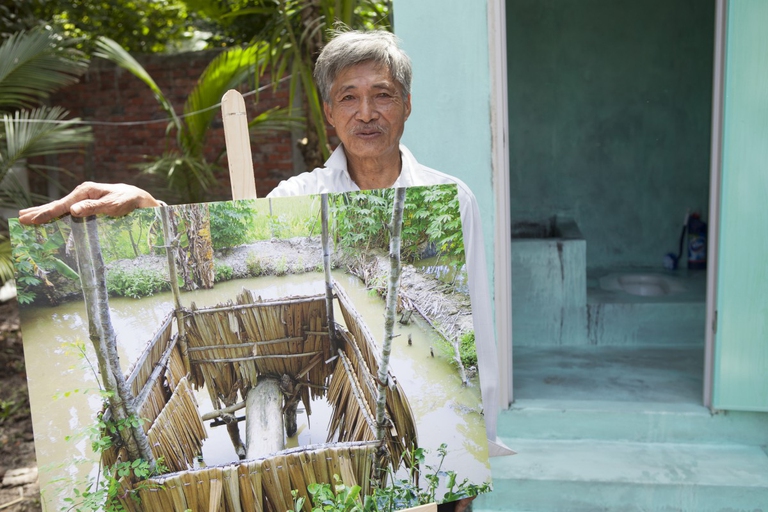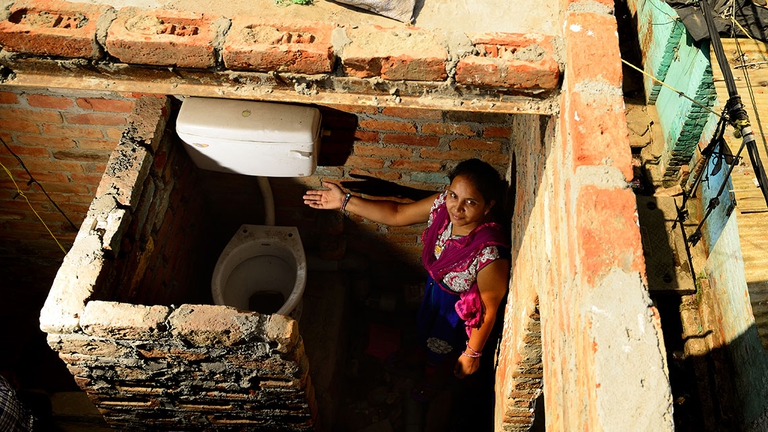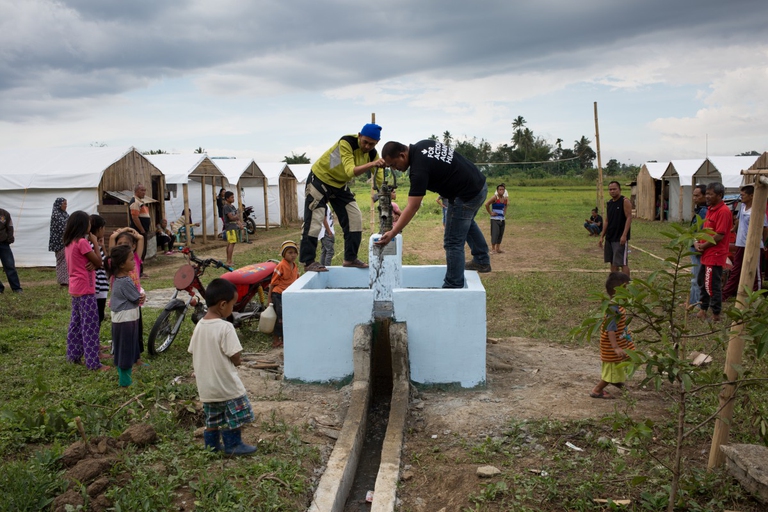
As per tradition after 12 years India held Mahakumbh, the world’s largest spiritual congregation that has been attracting pilgrims from across the globe.
Access to basic sanitation helps combat malnutrition, violence and the spread of life-threatening diseases. For World Toilet Day, Action Against Hunger tells us about its importance for sustainable development.
It may sounds like a joke, but it’s true: toilets save lives. Even the United Nations wanted to emphasize their importance by instituting, in 2013, the 19th of November as World Toilet Day.
The purpose of this day is to remind the world that today there are still billions – not millions – of people who don’t have access to basic sanitation, and that if we want to achieve the Sustainable Development Goals (SDGs) of the 2030 Agenda we must act now. SDG number 6, indeed, aims to “guarantee to everyone the availability and sustainable management of water and sanitation facilities”. But reality tells us a very different story: in a world where 6 billion people have a mobile phone, 2.5 billions don’t have access to a toilet. A figure that is just the tip of the iceberg of a far too much underestimated problem.
Exposure to human excrements has devastating effects on public health and nutrition: with no appropriate treatment, excrements affect the environment, including drinking water sources, thus facilitating the transmission of life-threatening diseases.
#WorldToiletDay2018 https://t.co/z1WrplcCCJ pic.twitter.com/7UpAFTZy8K
— AzionecontrolaFame (@acf_italia) 19 novembre 2018
1.8 billion people use water from sources contaminated with excrement, and 840,000 people (including 340,000 children under five) die every year from diseases such as diarrhea, cholera or dysentery – all of them are diseases that proliferate and spread due to the lack of adequate sanitation facilities and the scarcity of drinking water. It is therefore not surprising that precarious hygiene conditions are also among the main causes of chronic malnutrition, a disease which, although not lethal, delays children’s growth and compromises their physical and cognitive development.
There is another aspect of the problem that is completely ignored, as it doesn’t concern public health, but personal safety: it is estimated that one in three women in the world are exposed to the risk of aggression and rape due to the fact they don’t have access to indoor toilets. Improving access to sanitation would therefore have an enormous impact on many aspects of life and World Toilet Day comes every year to make us confront with our failures and encourage us to do better.
Action against Hunger has always been working to raise people’s awareness on hygiene issues in some areas of the world and in 2017 alone the organization’s activities on water and hygiene reached over 6 million people. Although many NGOs have long sensitized adults to good hygiene practices (such as use and construction of toilets, washing their hands with soap, etc.), most programmes overlook children younger than two, which make up an important part of the population.
This is why Action Against Hunger has decided to pay close attention to children’s first 1,000 days of life within its Water, Sanitation and Hygiene programs (WASH). The first “1,000 days” are defined as the period from conception to two years of age. Ensuring adequate nutrition during this period of time is crucial for the growth and development of the child, as nutrient deficiency is more likely to compromise growth if the deficiency occurs in the first 1,000 days, when nutrient requirements for the neuro-development is higher.
BABYWASH E I PRIMI 1000 GIORNI : “il nostro lavoro quotidiano sul campo mostra l’importanza cruciale di una gestione sicura delle feci umane e animali, per evitare che i bambini sotto i cinque anni contraggano la diarrea o un’infezione intestinale”https://t.co/aEclUsPIGi pic.twitter.com/Z1kouk48Iz — AzionecontrolaFame (@acf_italia) 17 novembre 2018
In this phase chidren are also more likely to get sick, so it’s essential to raise awareness among children and their parents about the importance of hygiene, especially since children under two spend most of their time at home. The NGO’s work, in fact, focuses on a household level, where children’s exposure to fecal matter is greater, and care practices are key to their nutritional status.
Read also: 19 November is World Toilet Day, what it is and why access to sanitation is so important
The goal is to interrupt faecal exposure and transmission in the first 1,000 days, which would significantly reduce malnutrition caused by precarious hygiene. For this reason, Action against Hunger intervenes with the distribution of items that will allow parents to ensure hygienic conditions necessary for the health of their babies (soap for washing diapers, baby bottles, emergency hygiene kits) and at the same time sensitises caregivers to the dangers of children’s faeces and the need to dispose of them in an appropriate way, so that they don’t end up affecting precious sources of drinking water. Only targeting the new generations a lasting change is possible.
Siamo anche su WhatsApp. Segui il canale ufficiale LifeGate per restare aggiornata, aggiornato sulle ultime notizie e sulle nostre attività.
![]()
Quest'opera è distribuita con Licenza Creative Commons Attribuzione - Non commerciale - Non opere derivate 4.0 Internazionale.
As per tradition after 12 years India held Mahakumbh, the world’s largest spiritual congregation that has been attracting pilgrims from across the globe.
Workers in tea gardens of West Bengal, India, that produces Ctc tea for domestic consumption complain that they have been devoid of basic facilities while political parties make hollow promises during every elections which are never fulfilled.
India is in the middle of the elections, but sadly none of the politicians have uttered a word on man-animal conflict that has been devouring several lives every year.
Manipur, a state in north-east India, is still reeling under the tremors of violence that broke out last year devouring lives and paralyzing the economy.
The government of Tanzania is currently planning to evict more than 80.000 indigenous Maasai people from their ancenstral land
A new UNU-INWEH report on the global bottled water industry reveals the massive scale of this market and the lack of strict quality controls.
Isatou Ceesay founded a social enterprise that is helping to fight plastic pollution and empowering women and young people to gain economic independence.
In 2020, Mihela Hladin made a radical decision that many, in recent times, have probably considered. This is her story, with photos by Matt Audiffret.
The Brazilian government has started evicting illegal gold miners, responsible for the health emergency that has hit the Yanomami people.










